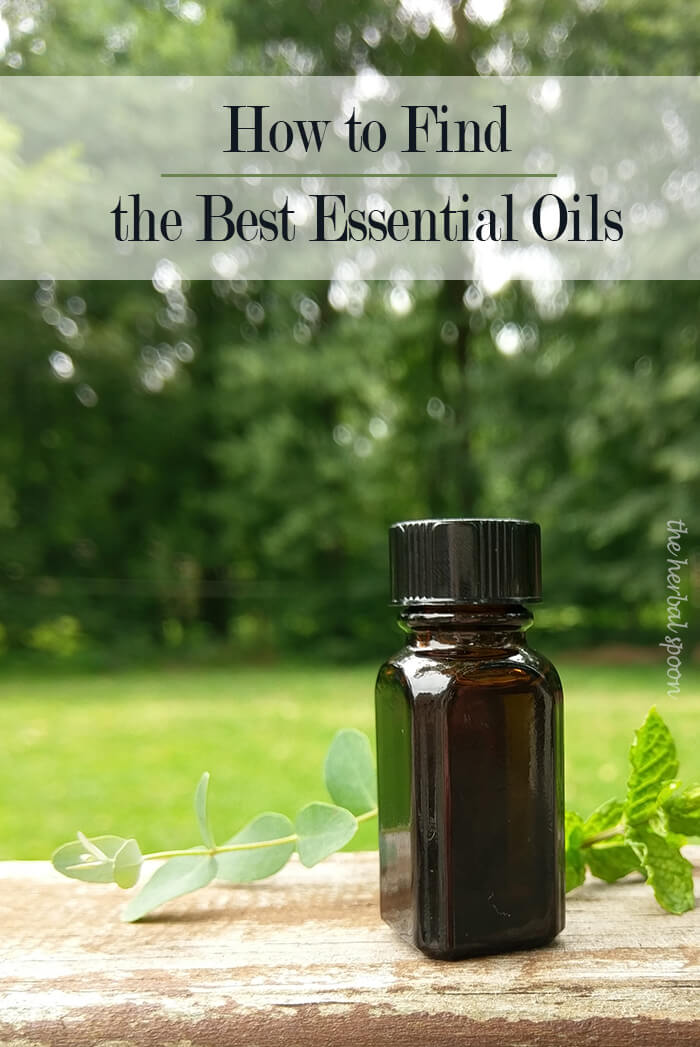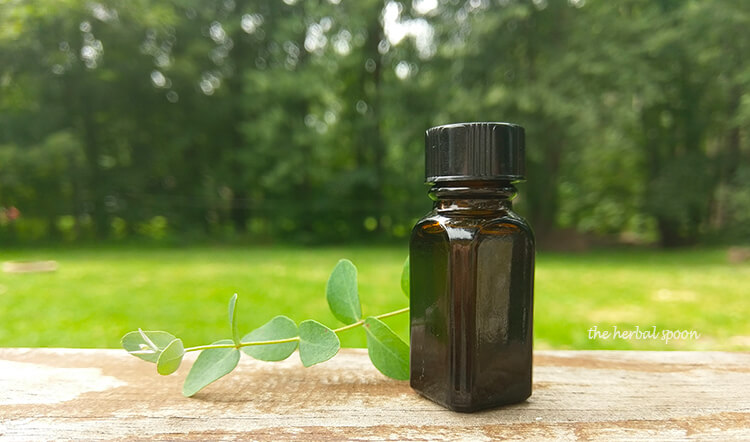
There’s a lot of misinformation when it comes to the best essential oils. Some people swear only their brand is pure. Others get the cheapest essential oils they can find, then wonder what they hype is about when they don’t work well. In this article I cover:
- What therapeutic grade really means.
- How to know if your essential oils are pure and potent.
- Why native sourced plants are so important, but organic may not be.
- Why a company’s safety info isn’t important to me.
Therapeutic Grade Doesn’t Equal Purity
Therapeutic grade is not an officially regulated term. This is a marketing term created to attract customers. The product may be pure or it may not be. This is why it’s important to view test results and verify the company’s standards, not rely on label catch phrases.
Is Organic Better?
Some growers follow organic standards, or use natural pesticide control but don’t have an official organic certification. Organic guarantees certain growing standards, but there are reputable sellers without this certification. Some farmers can’t afford an organic certification, as this raises the price for you and them both. Ask the company about growing standards. Look at the GCMS reports, which identify any contamination.
It’s like shopping at the local farmers market. Even though the sellers I frequent don’t have an official organic certification, I know from asking questions and getting to know them that they don’t use dangerous pesticides. I’m happy with that, and it keeps costs down.
Integrity and Honesty
You don’t have to dig very far to find some shady things going on with certain essential oil companies. Illegally importing endangered species, not releasing test results, and diluting with cheap (or synthetic) ingredients are just some of the problems with essential oil companies. I keep up to date with The Blue Tansy Analysis group, which posts essential oil test results and other chemistry info.
Mistakes happen, and the larger a company becomes the easier it is for something to slip through the cracks unintentionally. How they respond when an issue is discovered speaks volumes for their integrity. If they try to belittle the issue or those pointing it out (or worse, dish out threats and lawsuits), that’s not behavior I want to support.
Accurate Safety Information
This is a tough one. Supplement companies are prohibited by the FDA from making claims about their products. They can give dosage and usage guidelines, but they can’t imply the product will treat a disease. This results in a complicated word dance of trying to tell the consumer how a product will help them while staying out of hot water with the FDA.
There are several companies that give detailed usage information, but I’d argue this isn’t necessary when choosing which essential oils to buy. Some companies recommend unsafe usage, while others err so far on the side of safety it decreases efficacy. When the proper dose/dilution isn’t used, it won’t be effective. You can read more about the issue of overly “safe” essential oil use here.

Where to Find Accurate Essential Oil Information
I prefer to get my safety and usage info from sources outside of the companies I purchase from. Here are some of my favorite essential oil information books.
- Aromatherapy for Babies and Children (beginner to intermediate)
- Aromatherapy for Healthcare Professionals (more advanced reading)
- Practical Aromatherapy (good for beginning learners)
- The Essential Oil Encyclopedia by Julia Lawless (beginner to intermediate)
Third Party Testing
Anyone can claim their essential oils are all natural and pure. All essential oil companies do. Third party testing from a reputable and experienced lab ensures transparency between the company and consumer. This isn’t very helpful though if a company refuses to let anyone see their test results. When choosing the best essential oils, I look for a company that does third party testing (not in house testing) and the results are available to see. Dr. Robert Pappas is one of the leading essential oil chemists in the world and he posts essential oil test results here.
They Release the GCMS Reports
This goes along with the last point. GCMS stands for gas chromatography mass spectrometry. This test will reveal contaminants in the oil and the exact levels of the chemical constituents. It’s not so helpful if you can’t read one (It’s Greek to me), BUT it’s still important.
GCMS reports are also batch specific, meaning that each batch of each essential oil should have their own analysis for purity. If the company is only testing one batch of rosemary every few years and posting the same report for every bottle produced, it’s not accurate. There could be contamination of a specific batch that goes unnoticed due to inadequate testing.
Where to Find Third Party Test Results
There are reputable chemists that do oil testing and publicly release the results. For people like me who can’t analyze a GCMS report, I also like that they put the results in plain English. The groups below have tons of info on essential oil quality and purity for specific brands.
Fair Trade Sourcing
Good juju, Karma, the Golden Rule, whatever you want to call it, treating others like I want to be treated is important to me. I want to be fairly compensated for my hard work, and I want to earn enough to adequately support myself and family. I want the same for essential oil growers, many of whom live in third world countries.
More companies are sourcing from fairly compensated growers, but some take it a step further. My favorite essential oil company also does projects for the communities where their growers live.
- They build schools
- Provide hygiene kits so girls can stay in school
- Support agencies that stop child sex trafficking
- Dig village wells so people have access to clean water.
I’m glad to know I’m contributing to something that’s positively impacting someone’s life. These projects are funded by donations to my favorite company, not essential oil sales. For me, doing the right thing and being a part of the solution and not the problem are worth the price tag.
The Best Essential Oils are Natively Sourced
Essential oils are more potent (and can also be more sustainable) when they’re grown in the proper environment. A high altitude lavender grown in the mountains of France has a much different chemical profile than one grown in a US dessert. There are generational family growers that have refined and perfected the distillation of their country’s native plants over the years. These are the knowledgeable people I want to buy from.
Should a Company Own their Own Farms?
One of the largest essential oil companies biggest selling point was that they grew all of their essential oils on their own farms. After it came out in court that less than 1% of their oils were grown on their farms, they quietly changed their website to say “partner farms” instead.
There are artisan growers that sell the oils from their farm in small batches, though these can be hard to find. I’ve seen a few lavender farms that do this, though many growers partner with a larger essential oil company.
I prefer to buy essential oils from a company that has a close relationship with their growers to ensure high quality. Sometimes this means they’re grown on their own farms, and sometimes they’ve partnered with experienced growers.
Some brands buy off of the open market in third world countries, which is exactly what I want to avoid. This video from a very popular health store brand shows how they source their oils. It involves using a mud pit as a distillation pool and buying essential oils in used water bottles and old RoundUp pesticide containers. Not something I want to use therapeutically!!
Sustainability
The essential oil industry as a whole is not sustainable, so they should be grown, sourced and used wisely. Too many companies offering cheap oils do so by overharvesting, underpaying the growers, or buying cheap product off of the open market and bottling under their brand. I look for a company that:
- Doesn’t source essential oils from overharvested or endangered species.
- Doesn’t illegally import product from endangered species.
- Uses sustainable farming or wild harvesting methods.
I may make an exception if they’re sustainably (and legally) growing and harvesting an endangered species on their own or partner farms. This controlled method doesn’t damage the environment or further deplete the plant species.

The Best Essential Oils for the Best Price
Cheap cost indicates a low quality product. But more expensive doesn’t necessarily mean high quality. I’m willing to pay more for a product that meets my (strict) criteria. Third party testing has shown the really cheap essential oils (like those sold at grocery and drug stores) have synthetic ingredients added. Some don’t even have trace amounts of essential oil, but they’re still labeled “100% pure therapeutic grade.”
Multi-Level Marketing (MLM) Companies
This is a tough one and there are hot opinions on either side. I buy essential oils from both MLM and non-MLM companies.
Here are some of the negatives of buying from an MLM company:
- Prices are usually higher
- The upline may not be very helpful or supportive.
- Some advice shared in groups may not advocate safe essential oil use.
- Some MLM users are so loyal to their favorite company, said company knows they can get away with things they shouldn’t be doing.
The positives of buying from an MLM company:
- The right upline can make or break the experience. A supportive community of oil users share usage tips, product support, and learning experiences.
- A large portion of profits can go to support small businesses, improve family’s lives and to fairly compensate the native growers. (this all depends on the company, so always ask questions!)
The Essential Oils I Use
I use several different brands, including Plant Therapy, Eden’s Garden, and Mountain Rose Herbs. I stay away from anything sold at Walmart, drug stores, and the cheap online brands from Amazon.

Thanks for this helpful guide. I always thought oils were oils but now I know there is a huge difference!